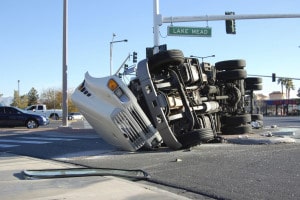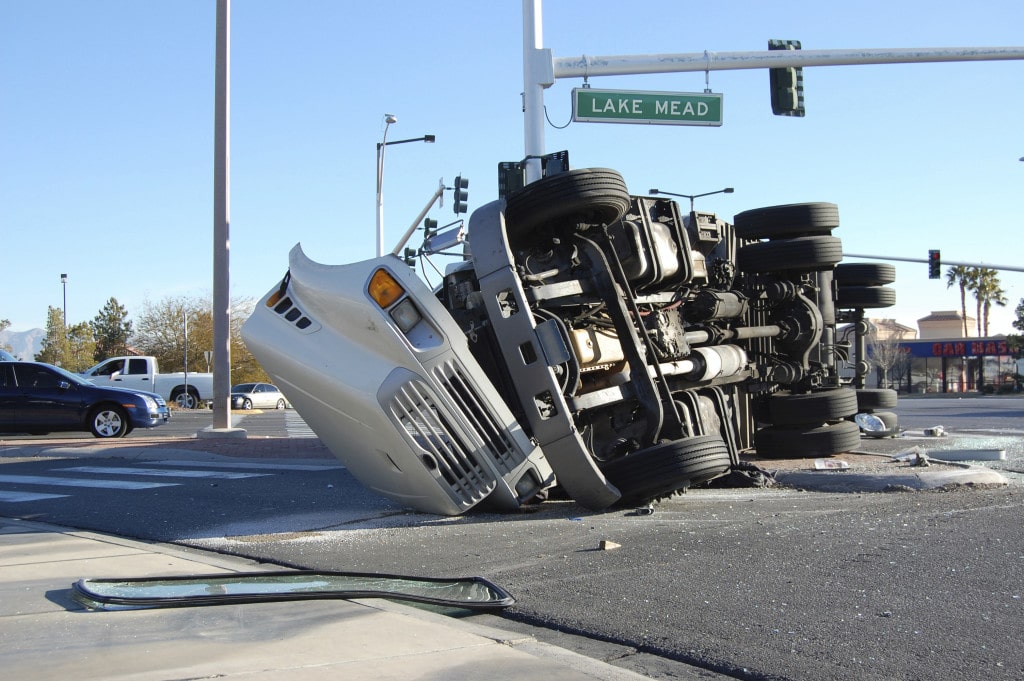Kentucky Trucking Accident Attorneys | Hit By a Semi-Truck in Kentucky: What Do I Do?
Driving through Kentucky trying to reach your vacation destination, you find yourself in a horrifying situation: a semi-truck has smashed into your car, destroying the vehicle and injuring you and your family. Panic starts to set in. How will you get home without a vehicle? Who is going to pay for your family’s medical expenses? What are you going to do if you cannot return to work right away? Who will support your family? Kentucky Trucking Accident Attorneys can help you thought this tragic time.
All of these questions are running through your mind, and you are unsure of where to turn. Fortunately, filing a claim in an accident involving a semi-truck is often similar to one in which the two vehicles are standard cars. However, in semi-truck accidents, there may be more than one person whom you are entitled to sue. Trucking accident lawyers can help you make to make this decision.
Decide How to Proceed
If you were to be involved in an accident involving a regular car, you would almost always sue the other driver. In some cases, you would also consider filing against the owner of the car, even if he was not present at the time of the accident. In commercial trucking accidents, however, you may want to think about other persons who may be involved in the incident.
Not only will you sue the driver of the semi-truck in a commercial accident, but you may also be entitled to sue the driver’s employer if he was working at the time of the accident. Most, if not all, employers take full responsibility for any actions performed by their employees.
It is also important that your Kentucky Trucking Accident Attorneys discusses with you any other parties that may have been involved. For instance, the driver may have been hired by the owner of the truck, or the owner may have leased the vehicle to another driver to deliver goods for another company. It is easy to see how these situations can become complicated rather quickly. In other words, you may not only be entitled to sue the driver and the owner of the vehicle but also the lessor and the company in charge of the shipment as well. If the accident was the result of a mechanical error such as failing brakes, then you may wish to sue the mechanic.
Can You Sue the Driver and the Company?
While it is possible to sue both the driver of the truck and his employer, your lawyer may suggest otherwise. Many people in these situations often feel that the driver should pay for his actions; however, lawsuits are not entirely about serving justice. The goal behind a lawsuit is to obtain the most compensation possible for your injuries and the damage that occurred. A jury may be more sympathetic to the driver; after all, he is a human being and accidents happen. Instead, Kentucky Trucking Accident Attorneys may suggest simply going after the trucking company instead, and it bodes well for you if the corporation is a large one.
What Happens if the Driver Has No Employer?
If the driver works for himself, also known as an independent contractor, he will still have clients. While he has no formal employer, he is providing his driving service and transporting goods in exchange for pay. You may always sue an independent contractor, but there may also be other parties involved.
Assume that the owner of the vehicle did not have it properly serviced before transportation began and the accident resulted from a stuck acceleration pedal. Your Kentucky Trucking Accident Attorneys will consult the contract signed by both the driver and the owner, and he will be able to determine if the owner should be held responsible for the accident.
What to Do in a Semi-Truck Accident
If you or someone you know has been injured in a semi-truck accident, contact our trucking accident lawyers. Here at Attorney Group for Kentucky, our experienced Kentucky Trucking Accident Attorneys can guide you through the process of filing a lawsuit and help to determine who may be held accountable for the incident.






